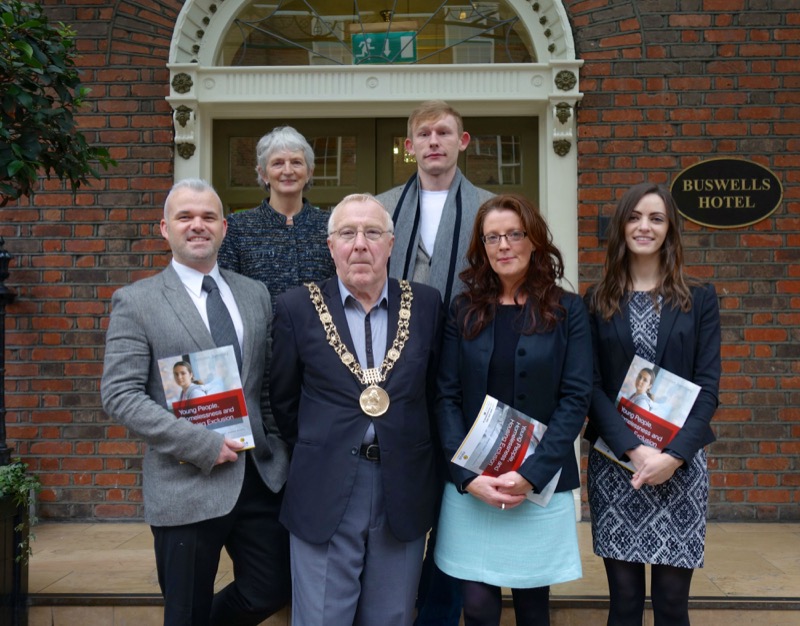Study Highlights Barriers Homeless Young People Face in Accessing Housing
Posted on: 21 November 2014
A new study examining the lives and experiences of homeless young people in Ireland carried out by the Children’s Research Centre at Trinity College Dublin, adds to our understanding of homelessness by providing a detailed account of the barriers young people face accessing housing. This report, entitled Young People, Homelessness and Housing Exclusion, was recently launched by Ms Sylda Langford, Homelessness Oversight Group member and former Director General of the Office of the Minister for Children and Youth Affairs. Christy Burke, Lord Mayor of Dublin made the opening address at the launch.
The Trinity research group, led by Dr Paula Mayock, Assistant Professor in Youth Research, School of Social Work and Social Policy and the Children’s Research Centre and research assistants Sarah Parker and Andrew Murphy also in the Children’s Research Centre, investigated the ‘life stories’ of homeless young people and charted their experiences from early childhood. The researchers focussed specifically on their paths or routes to homelessness, their service interactions, family relationships, and experiences of seeking stable housing.
The study, which was funded by Focus Ireland, also makes an innovative departure from existing research on homeless youth in Ireland by including the perspectives of the families of 10 of the participants. According to the researchers, the integration of the views and experiences of both young people and their careers has potential to shed new light on the complex and under-researched family dynamics that may propel young people to leave home prematurely, as well as on those family processes that facilitate a resolution to their homelessness.

The study involved the conduct of biographical interviews with 40 homeless young people aged between 16 and 24 years and makes an innovative departure from existing research on homeless youth in Ireland by including the perspectives of the family members of a sub-sample of the study’s participants. The integration of the views and experiences of both young people and their carers sheds new light on the complex and under-researched dynamics that may propel young people to leave home prematurely, as well as those family processes that facilitate a resolution to their homelessness.
Speaking at the launch Dr Mayock, commented: “Homelessness in a form of disempowerment and symbolises a unique form of marginality. Young people who become homeless are propelled into adult roles at an accelerated rate and, simultanelously, their homelessness prevents their participation in many of the institutions designed to help them to navigate the transition to transition to adulthood. The need to get young people into of age and ‘stage’-appropriate of housing with appropriate supports at the earliest possible juncture must be seen as paramount ”
However, the research uncovers significant barriers to housing stability for the study’s young people as well as numerous economic and systematic constraints of access, including a lack of affordable accommodation options, a rental market that discriminates against those in receipt of rent supplement, and discrimination by landlords on the basis of age-related stereotypes. According to Dr Mayock, “Affordable housing options for young people on benefits or low incomes are currently extremely limited, which means that these young people run the risk of getting ‘trapped’ in a cycle of homelessness”.
Speaking at the launch, Sylda Langford said: “This is the type of research that the Government, relevant departments and statutory bodies like Tusla must take note of and ensure it is fully taken account of when developing policy and services response to (and prevention of) youth homelessness.”
